Search
Research
Parainfluenza Virus Infection in an Australian Community-based Birth CohortIn a community-based birth cohort of 158 Australian infants followed to age 2 years, the incidence rate of human parainfluenza virus (HPIV) was 0.42 (95% CI = 0.33, 0.54) episodes per child-year with episodes occurring year-round, peaking in the spring season.
Research
Aquatic high intensity interval training to improve aerobic capacity is feasible in adolescents with cerebral palsy: pilot randomised controlled trialTo investigate feasibility of aquatic high intensity interval training for adolescents with cerebral palsy, who can ambulate independently but may choose a mobility aid in some circumstances.
Research
AMEND study protocol: A case-control study to assess the long-term impact of invasive meningococcal disease in Australian adolescents and young adultsThis study aims to address this evidence gap by assessing the clinical, physical, neurocognitive, economic and societal impact of invasive meningococcal disease
Research
Antibiotics versus topical antiseptics for chronic suppurative otitis mediaTreatment of chronic suppurative otitis media with topical antibiotics probably results in an increase in resolution of ear discharge compared with boric acid
Research
Prevalence of chronic wet cough and protracted bacterial bronchitis in aboriginal childrenStrategies to address reasons for and treatment of chronic wet cough and protracted bacterial bronchitis in young Aboriginal children in remote north Western Australia are required
Research
Azithromycin reduces airway inflammation induced by human rhinovirus in lung allograft recipientsOur data illustrate that rhinovirus infection is capable of infecting upper and lower airway epithelial cells, driving cell death and inflammation
Research
Confounding effects of gavage in mice: Impaired respiratory structure and functionIt is therefore clear that gavage can have significant impacts on experimental animals in terms of their stress response and overall morbidity and mortality
Research
Sun-immune connectionExposure to ultraviolet radiation damages skin cell DNA but skin cancers develop because ultraviolet radiation also affects the immune system
Research
Availability and administration of benzathine penicillin G for the prevention of rheumatic fever in Africa: Report of the Working Group on PenicillinBenzathine penicillin G availability should be addressed and African health workers’ knowledge and practices need to be augmented
Research
Impact of multidrug-resistant tuberculosis and its medications on adverse maternal and perinatal outcomes: Protocol for a systematic review and meta-AnalysisWe aim to determine whether multidrug-resistant tuberculosis and its medications during pregnancy impact maternal and perinatal outcomes
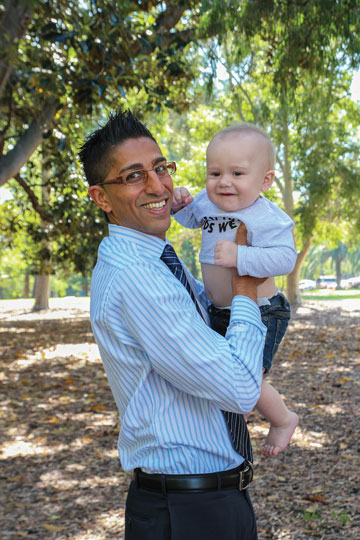
News & Events
Drug find could represent big win for our little patientsDr Rishi Kotecha knows too well the devastation of a leukaemia diagnosis in a child, treating children as a consultant at Princess Margaret Hospital.
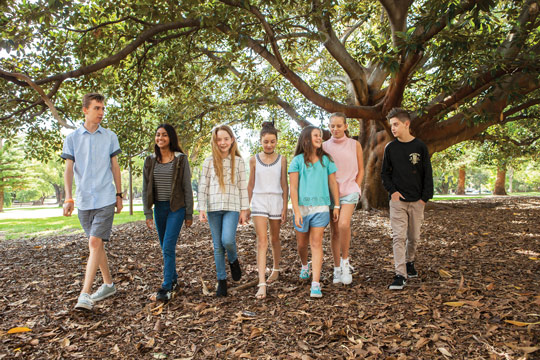
News & Events
New policy provides much needed focus on overlooked youthThe need for a WA Youth Health Policy has been evident for years. Now, with The Kids Research Institute Australia helping to drive the project, it is coming to fruition.

News & Events
Robot babies increase teen pregnancy ratesThese infant simulators are given to high school students to take care of as part of a teen pregnancy prevention program known as Virtual Infant Parenting.
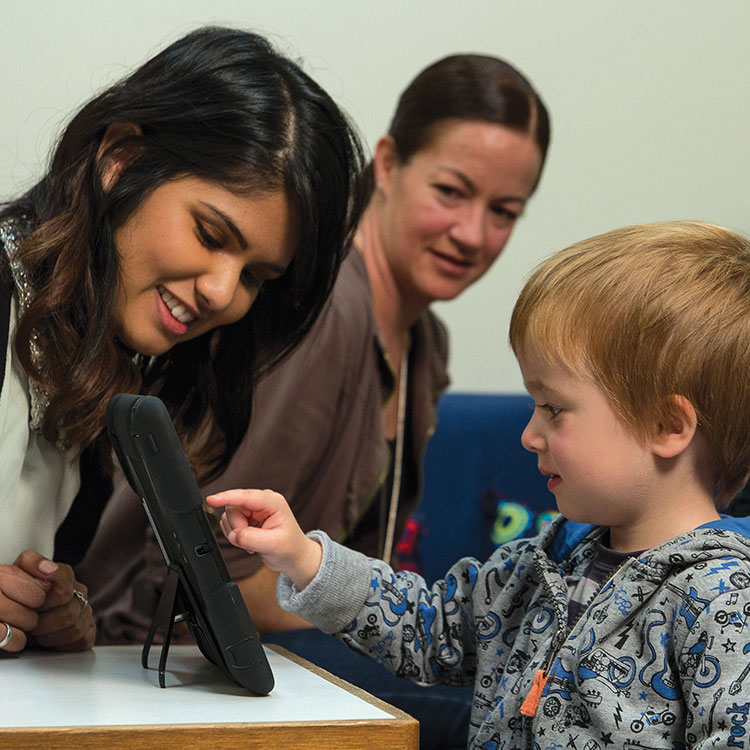
News & Events
Children with autism may benefit from app-based therapiesA The Kids Research Institute Australia study has shown that in addition to intervention with trained therapists, children with autism may benefit from app-based therapies.
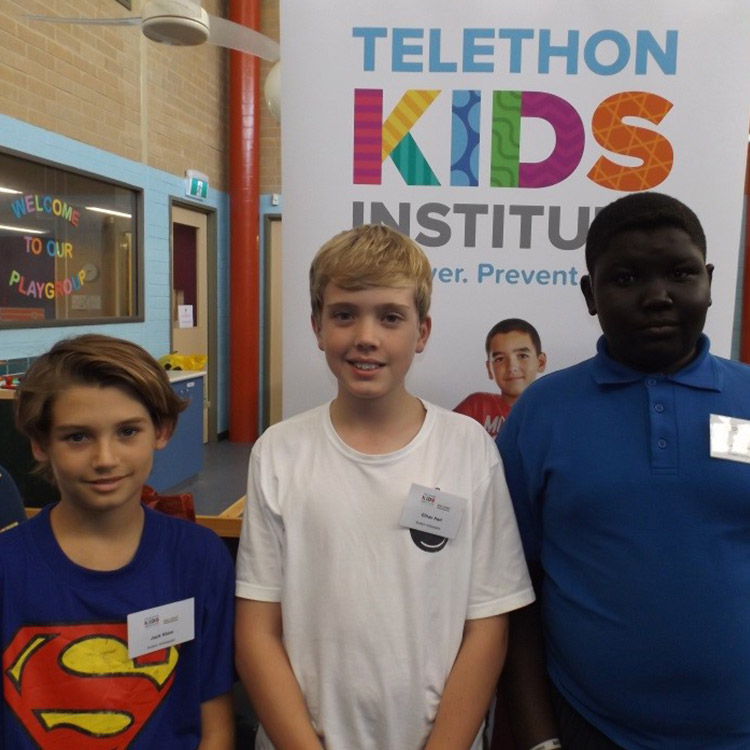
News & Events
Project helps Ethan belongEthan recently took part in Belong, a study led by The Kids which aims to ensure deaf and hard of hearing kids have a happy & positive school experience
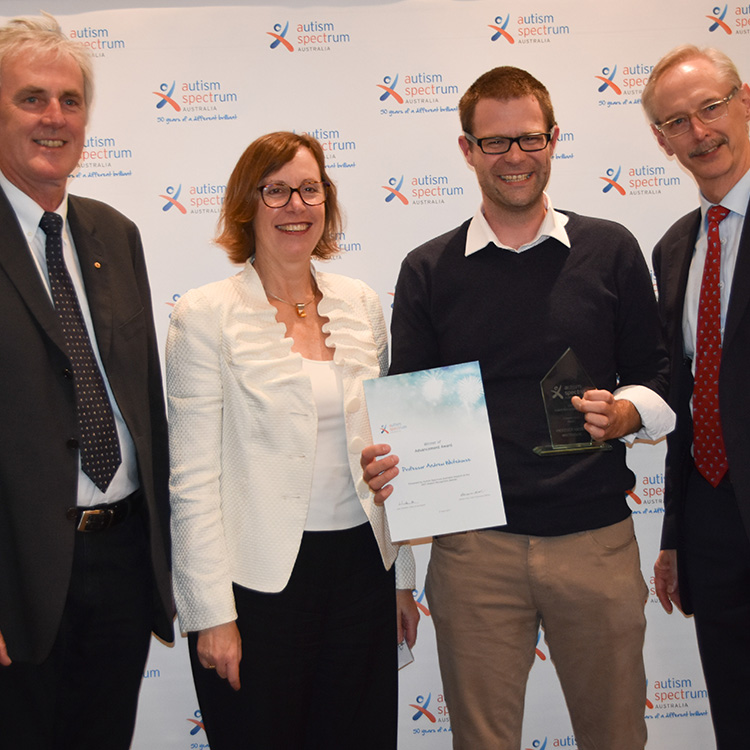
News & Events
Autism researcher wins accolade for science videosProfessor Andrew Whitehouse has been awarded an Autism Spectrum Australia Recognition Award for his work communicating scientific findings to families.
